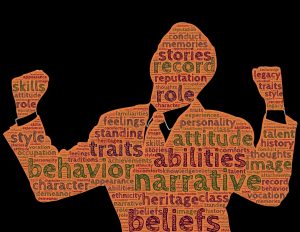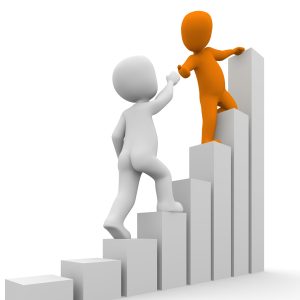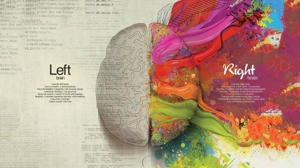Discovering Our Identity
I have to admit that it was a bit of a challenge to go ahead and write my first blog post, even more since I wanted this article to be different and, perhaps, special. At least not in the style we usually read elsewhere. Then I realized that, even if I write about subjects that many other people do, mine are going to be different simply because they come from the uniqueness of who I am. So, this realization inspired me to write about ‘‘discovering our identity’. In other words, a few thoughts on who we are and how different (if any at all) we are from other people.
So much research and study has been carried out, and so much written about this subject. However, in this article, I would like to make some reflections and communicate these in as simple words as possible.
Today I would like to talk about what the personality in relation to identity, focusing on self-esteem, life project, the inner sense of control, and the strength of the ego.
What are we?
We are the wonderful integration of physical, biological, psychological and emotional aspects that, in combination with social contexts and structures, groups and networks, become the building blocks of our identity.
All these dimensions provide us with a sense of self that plays multiple roles which are associated to meanings, expectations and behaviors.
Who are we in our own eyes?

When we look at the mirror every morning, we see a physical image of ourselves which triggers this kind of internal dialogue that constantly evaluates and criticizes the way we look as well as what we think, feel and do.
Some people’s self-evaluation is positive, which makes them start the day feeling ready, confident, motivated and energized. Others, whose self-dialogue results in a poor image in terms of what and who they are, are prone to keep repeating this self-defeating image of themselves which, more often than not, does nothing else but limiting their growth and potential.
So what happens with us the moment we step out from the comfort of our home carrying ourselves with a certain mood, state of mind and clear purpose, and start interacting with the external world?
Positive Self-Assessment
You have enough faith and belief in yourself to actively interact with the external world (Self-Esteem). If you face challenges, you will be able to confront these in an adequate manner because you are confident and feel internally strong to face them, even if these relate to failure and disappointment (Ego Strength). You are clear about your aspirations and hence you direct your best efforts towards those goals (Life Purpose). You assume responsibilities for your actions and its consequences rather than passing the blame onto others (Internal Sense of Control).
Of course, there are days when some of these aspects may not be, or feel, as being optimal. However, as long as these do not deviate significantly from your ‘usual’ pattern (allowing for slight ups and downs), there is nothing to worry about.
Negative Self-assessment
You might be struggling interacting with the environment that surrounds you, perhaps because you may feel that you are neither good enough as a person nor worth for others to get to know you (Self-Esteem). Eventually, it may be difficult for you to deal with everyday challenges and failure (Ego Strength), as these trigger a feeling of confusion in respect of your goals and purpose (Life Purpose), and also preventing you to take responsibilities over your actions and its consequences (Internal Sense of Control)..
The above evaluation may appear to be very harsh. However, we have to consider that some of the above-mentioned aspects may not be experienced to such extent..
Is it possible to improve a negative self-assessment?
The simple answer is YES. Eventually an identity crisis forces us to question and re-evaluate some of our roles, as well as their meanings, expectations and the meaning they give to our lives..
The First Step

Sometimes the first step is the most difficult to take, because it means that we need reach a ‘state ‘of This means acknowledging the existence of a problem that is affecting our quality of life in general. Then follows an exploration period during which we aim at understanding the triggers involved in, and our response (rational and emotional) to, a particular situation. Once we reach a reasonable level of clarity, we can then start evaluating different scenarios, with specific sets of goals that might allow us to start the process of ‘moving the dot’, i.e. taking us from where we are now to where we want to be next considering, of course, your own set of values and beliefs. With this in mind, we need to create a new narrative, in other words changing our script.
The Second Step
The next step is to determine an 'action plan'. The most difficult part of this process is often the 'change management' process, which is often the most difficult part of the process is persistence. The greatest risk is the temptation to 'give up' and 'seek refuge' in the eventual comfort of previous patterns of behaviour, thus foregoing the potential benefits of change.
We must bear in mind that it is virtually impossible to implement major changes in a very short period of time, simply because both we and those around us need a period of adaptation. In my opinion, the best way to approach this task is to taking one step at a time and make sure that our actions point in the right direction.
This process facilitates moving away from vicious cycle that affected, among other aspects, our poor self-evaluation, to a virtuous one where you will start feeling more positive about yourself through both, change in self-image and feedback from the external world.
Needless to say that self-esteem, ego strength, life purpose and internal sense of control are interconnected. Therefore, modifying one of these aspects will necessarily have an impact on the others (something to consider at the time we rewrite our ‘script’).
Changing our self-evaluation helps developing a new life story that brings along a higher level of satisfaction and happiness with one’s life.
If you would like to know more about anything in this post, or to book a free phone consultation, please send me a message via the contact page.

